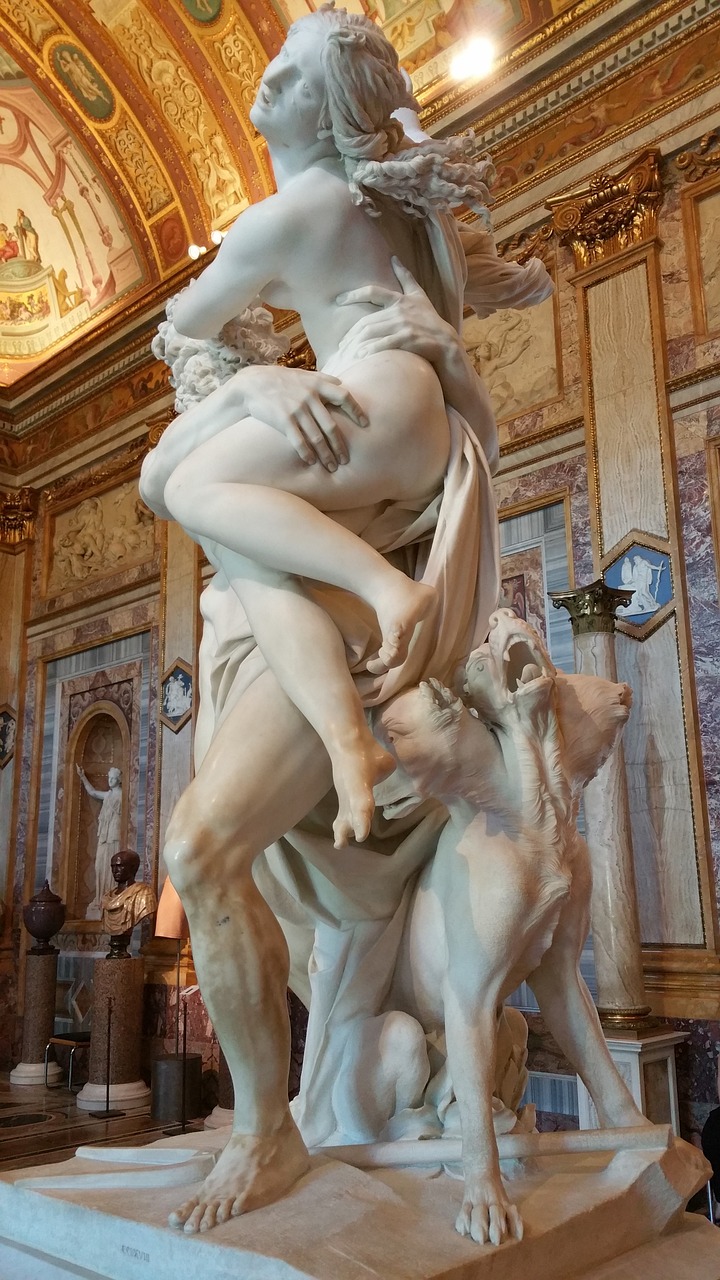The story of Proserpina and Pluto, found in Ovid’s “Metamorphoses,” narrates a troubling tale of the god of the Underworld seizing the harvest goddess Ceres’ daughter in a non-consensual act. This event was initiated when Cupid, fulfilling Venus’s orders, struck Pluto with a golden arrow, creating an irresistible attraction. Venus, believing in her ability to inspire passionate love, aimed to bridge the gap between the living and the dead by intertwining their fates.
At the time of this incident, Proserpina was reveling in the fragrance of blooming flowers by a fountain, embodying the joys of spring and youthful vitality. In an unexpected moment, Pluto abducted her, whisking her away in a chariot driven by dark steeds into the abyss of the Underworld. The nature of Pluto’s actions remains ambiguous—whether it was a violent abduction or an impulsive love affair—but Ovid describes him as a “ravager” as he forcefully removed her garments during this frantic descent, plunging Proserpina into deep despair and turmoil.
Simultaneously, Ceres embarked on a fruitless quest across the world to find her daughter. Upon returning to the grove where Proserpina once frolicked, she discovered the remnants of clothing that marked her daughter’s abduction. This revelation fueled her outrage and, in retaliation, she unleashed a blight accompanied by scorching rays and fierce storms, devastating the harvest and rendering the once lush landscapes barren. Amidst this chaos, a nymph named Arethusa approached Ceres, informing her that Proserpina was not merely a captive but had been elevated to the status of queen in the Underworld, where her noble demeanor belied an underlying sorrow.
Determined to rescue her daughter, Ceres turned to Jove, her brother and Proserpina’s father, for assistance. Jove contemplated the situation, ultimately suggesting that Pluto’s actions stemmed from love, not malice. This perspective did not appease Ceres, prompting Jove to propose a middle ground: if Proserpina had eaten nothing while in Hades, her return to Earth would be possible.
Upon venturing into the Underworld, Ceres and Jove discovered that Proserpina had, regrettably, consumed seven pomegranate seeds—representative of the dead. A dispute ensued between Ceres and Pluto over Proserpina’s fate, with Jove mediating the conflict. Realizing the impasse and that neither side could forsake Proserpina completely, Jove decreed that she would alternate her time, spending half the year with Ceres and the other half with Pluto. This arrangement marked the genesis of the seasons.
When Proserpina was due to return to her husband, Ceres mourned deeply for her loss, causing the crops to wither and ushering in autumn, which preceded winter. Conversely, when Proserpina returned to the surface, vibrancy returned to the land, heralding the rebirth of spring and summer, thus beginning the cycle anew each year.



